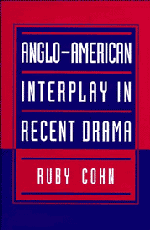1 - Funny money in New York and Pendon
Published online by Cambridge University Press: 19 March 2010
Summary
The American Neil Simon and the Englishman Alan Ayckbourn are magnets to the theatre in an age of mass media. Both playwrights are energetically productive, what with Simon's twenty-seven plays and Ayckbourn's thirty-nine, although the numbers may be mounting as I write. Both men are devoted to comedy, but they have at times voiced a yearning for a Chekhovian blend of the comic and the tragic. Ayckbourn calls his plays “black farce” (Innes, Modern British Drama, p. 317). Black or white, their plays have been translated into many languages, yet each playwright has had only limited appeal in the country of the other. Grounded in the middle-class mores of their respective countries – Simon urban and Ayckbourn suburban – the two playwrights are routinely paired, almost as though they were a comedy team, but no one has lingered over their likenesses as they craftily delineate family strains.
Ayckbourn himself distinguished half-humorously between them: “If you dropped a play of [Simon's] in the street and the pages fell out in any old order, you'd still be laughing as you picked them up. If you dropped a play of mine, too bad. As a writer, he's highly verbal whereas I'm situational” (Kalson, Laughter in the Dark, p. 44). My quotation from Simon is more general, differentiating two cultures rather than two writers: “American humor is rooted in people's neuroses, while English humor is more slapstick” (“Make 'em Laugh,” p. 14). There is some truth in both insights, each playwright surreptitiously defending his own practice.
- Type
- Chapter
- Information
- Anglo-American Interplay in Recent Drama , pp. 9 - 35Publisher: Cambridge University PressPrint publication year: 1995



